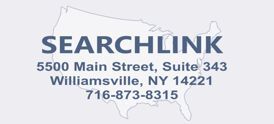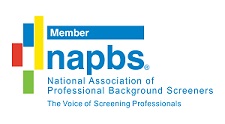INDUSTRY NEWS
Woman admits to embezzling $110,000 from Grand Island senior center
by Evan Anstey
Nexstar Broadcasting, Inc.
Casino gambling addiction fueled crime according to DA
GRAND ISLAND, N.Y. (WIVB) - BUFFALO, NY (WIVB) Barbara Gannon, 71, pleaded guilty to grand larceny in the second degree Tuesday before Erie County Court Judge Sheila DiTullio.
She was the director of the Golden Age Center on Grand Island, but admits that between 2011 and December of 2017, when she retired, she embezzled $110, 671 from the senior citizens center.
Erie County District Attorney John Flynn says she had a casino gambling addiction, so she set up a separate bank account in the center's name but only she had access to it.
The separate account allowed her to pocket some of the money seniors would pay for day trips.
Flynn says it's disturbing to him that the thefts were not discovered for years until an accountant noticed it when she retired.
He says the temptation to steal can get out of control.
"Once you do it that first time and get away with it, now the second time becomes easier and then once you get away with it a second time the third time becomes easier and the fourth and it just snowballs from there. My advice to people is don't so it the first time."
The Town of Grand Island was made whole by its insurance company, but Gannon is expected to repay the entire $110,671 debt.
She could receive anything from probation to a maximum of 15 years in prison when she is sentenced on May 2.
Man who embezzled from youth sports league to repay, avoids jail
by Nancy A. Fischer
Buffalo News
NIAGARA FALLS — Paul Boyd's friends said they still have not gotten over the shock of learning that he had embezzled tens of thousands of dollars from a youth sports league.
But they have forgiven him and that, combined with their pleas to a judge for compassion, will help keep Boyd out of jail.
Boyd, 47, of 101st Street, was sentenced Friday to three years probation and ordered to repay all of the more than $52,000 he stole over a four-year period from the Cayuga Youth Athletic League.
Boyd told City Court Judge Robert P. Merino that he wanted to publicly apologize to his wife and the board and said he will “definitely handle restitution.”
Merino said he initially did not want to grant Boyd probation, but changed his mind after receiving letters in support of Boyd from board members and after Boyd showed willingness to cooperate with authorities.
Merino recalled a case like Boyd's 25 years ago involving a youth football league. He said he sees similarities among such embezzling cases.
“There is a lack of control sometimes and there is more trust [in these groups] than in the business world,” he said. “I see people harmed, but who is actually harmed are the children.”
Boyd spent a decade as the treasurer of the Cayuga Youth Athletic League. Friends and colleagues said he was dedicated to the organization. But when his Western New York Mobile Home Business started to have financial difficulties, he dipped into the group's coffers.
“Here's a guy who leads a law abiding life and bends over backwards for an organization, but his business takes a little bit at a time and suddenly it gets overwhelming,” Joseph L. Leone Jr., Boyd's attorney, said following the court appearance. “Basically he's a decent man, but he was overwhelmed by financial need.”
Boyd originally was charged with felony grand larceny, but he agreed to plead guilty last month to a reduced charge of petit larceny. He immediately paid back $20,000. In court on Thursday, Leone said his client also had another $5,000 to hand over to the association.
Board President Jeremy Mixon said in a letter to the court that friends have forgiven him. When Boyd appeared in court, Mixon sat next to him.
Merino told Boyd he must also abstain from alcohol, make restitution payments of $750 per month, serve 40 hours in the Niagara County sheriff work program and perform 75 hours of community service. Boyd also was fined $500.
Volunteer youth coach is charged by feds with distribution of cocaine
by Dan Herbeck
Buffalo News
An East Amherst man who was identified by police as a youth league volunteer football coach was arrested by federal agents Monday on felony cocaine-distribution charges.
U. S. Drug Enforcement Administration agents said Eric J. Humphrey, 31, of Moorgate Court, is suspected of being one of the leaders of a major cocaine-trafficking ring.
Investigators who arrested Humphrey at his home Monday afternoon said they found a duffel bag there that appeared to contain about $100,000 in cash.
A pound of powdered cocaine, 4.5 ounces of crack cocaine and 21 kilogram-size cocaine wrappers also were recovered from a “stash house” allegedly operated by Humphrey on Goodyear Avenue on Buffalo's East Side, said Charles H. Tomaszewski, agent in charge of the DEA's Buffalo office.
During a recent investigation, agents learned that Humphrey coached a youth football team in the Buffalo area and that he operated the Good Life Sports Bar & Grill at 3067 Bailey Ave., north of Kensington Avenue, Tomaszewski said.
Agents raided the bar Monday, and it is likely to be subject to federal forfeiture proceedings, Assistant U. S. Attorney Thomas S. Duszkiewicz said.
“The bar has been very extensively renovated over the past couple of years,” Tomaszewski said.
Authorities did not release the name of the youth team or league where Humphrey is said to have volunteered.
In addition to the DEA and federal prosecutors, the Erie County district attorney's office, Buffalo police, Amherst police and the FBI Safe Streets Task Force assisted in the investigation, authorities said.
Federal agents said men they identified as relatives of Eric Humphrey— John E. Humphrey, 39, and Charles M. Humphrey Jr. 41, both of Buffalo— also were arrested on felony drug-conspiracy charges.
During Monday's arrests, police seized a GMC Sierra Denali pickup truck from Eric Humphrey's home and a Mercedes-Benz sedan from Charles Humphrey's residence on Pine Street, Duszkiewicz said. John Humphrey's address was given as Phyllis Avenue.
Names of other defendants are expected to be released at a news conference today.
Is your next employee reliable?
by Joe Iannarelli
Business First
In every industry, employers strive for a common goal; filling positions with qualified, ethical people. Good work experience just isn't enough to ensure a productive employee. Employers need to take the guesswork out of hiring and utilize pre-employment background and security checks to do so.
Antisocial character traits can disrupt the workplace, and lead to discipline and other issues that can lose time and money for companies. Screening out undesirable applicants at the pre-employment stage is easier than dealing with them after they have been hired.
That's where SearchLink comes in.
What's going on: The company specializes in background checks and security screenings for employment. Employers may hand over the applicant's entire application to verify all the information. SearchLink checks for any felony or misdemeanor convictions. The company also does tenant screening for rental companies, checking for everything from judgments, liens and lawsuits either for or against potential renters. Wholesale mortgage retrieval, document and title searches are also performed.
"Whatever information we obtain is purely legal," says John Pecoraro , SearchLink president. "We receive most of our information through the Freedom of Information Act."
Employees: Seven
Clients: Attorneys, temporary employment agencies, supermarkets and wholesale clients. A majority of SearchLink's customers are from out of state.
How it works: Employers can order criminal background checks directly from SearchLink. Orders are obtained via e-mail or directly through the company's Web site. Orders can also be faxed. The order includes the applicant's name, Social Security number and date of birth. Depending on what information is needed, SearchLink goes back at least seven years but can check up to 20 years. The results are returned to the employer within two business days in the form of a synopsis of what was found.
"Because of our place in the industry, we are able to do things faster and cheaper than all of our competitors," Pecoraro says. "Insurance companies offer lower premiums to employers for this type of service so there is a benefit for having this done."
Founded: 1992
History: The company was started by Nina Juncewicz. After becoming an attorney, Juncewicz sold the business to Pecoraro to avoid any conflict of interest with her law firm. At that time, Pecoraro was owner of Ristorante Grano, a fine dining establishment in Clarence.
"I saw the potential for growth in the industry despite fierce competition from other companies outside of the state," he says. "We expanded our services to include mortgage and title services to stay one step ahead of my competitors."
When Pecoraro purchased the company, he handled 120 to 140 orders a week. His staff now handles 1,200 to 1,400 orders a week, charging $10 to $15.
Revenues: Up 75 percent from last year
Challenges in the industry: New York state taxes and state-run criminal searches.
"The taxes New York small businesses are forced to pay are detrimental not to mention that the state is starting to do its own criminal searches," Pecoraro says. "The state charges $52 and has locked my company and others in this industry out of certain counties forcing us to charge more expensive searches in other parts of the state."
Biggest accomplishment within the last year: Fatherhood.
Pecoraro and his wife Francesca have two children. Anthony is 3-years old and Caterina is 11-months old.
"It's changed my whole perspective on life and business," he says. "Not only am I working to help support my children but I am helping my staff members provide for their families as well."
Easiest part of the job: Sales.
"Customer service is in my blood and sales just come naturally," Pecoraro says. "I've been in it for so long, it's just something that I find easy to do, especially with the services my company offers."
Toughest part of the job: The pressures of managing a successful business.
"My family depends on me to be successful and so do my employees," he says. "For myself and the people I have gathered to work with me, this is our chance to succeed. I have to go the extra mile for myself and my employees. They need me to come through for them. Failure is not an option."
Interesting fact: Pecoraro's family ran the food and beverage operations at the Statler Hilton in the late 1970s and early 1980s.
"My brother and I bused tables for 25 cents as kids," he says. "I learned about hard work and dedication from an early age."
You can't skimp on employee background checks
by Joanna Krotz
A few years back, two armed robbers were caught ransacking an upscale California home and they wound up shooting the owner. The thieves hadn't expected anyone to be there.
That's because they knew a lot about that house and its security. The pair had spent hours in the home, as carpet cleaners for a service that caters to wealthy homeowners.
The cleaner-robbers had a clever scam. Most affluent owners don't hang around when house cleaners arrive. So, typically, one guy worked while the other roamed, casing the contents, alarm systems, doors and windows. Then they left, only to return several months later to rob the place. Victims never made the connection to the carpet service — until the shooting.
When the robbers were found, the homeowner sued the service. It turned out that the men had criminal records and felony convictions before they were hired.
The company was found guilty of "negligent hiring." Its owners had to pay $11 million in damages.
When you tally the dollars and time it takes to recruit, interview, hire and train an employee, it doesn't make sense to cheap out on verifying background details. That may be especially important for smaller businesses where staffers often have multiple responsibilities. Even tiny employee lies can hurt your firm's reputation or bank account. And one bad hire can do enormous damage.
You do the math
Today, it costs roughly $50 for a professional pre-employment screening. Such searches ran $200 a few years ago. Prices are dropping as technology takes over.
Most third-party background checks are now completed in three to five days via expert searches of computerized public records and personal databases. When red flags are raised, investigators follow up the old-fashioned way, by phone and wearing out shoe leather.
There also are Web sites that offer access to public and commercial records, including Informus and KnowX. So you can gather background information for yourself.
This, of course, falls into the category of being careful about getting something for nothing. Such sites aren't necessarily trustworthy. You might end up with incorrect information and/or legal liability.
Heightened concerns
Lately, the efficient price and worries about safety brought on by Sept. 11 have led to more frequent employee screening in Fortune 500 and other large corporations. For instance, at PeopleWise, a Hollister, Calif.-based screening provider that helped with the hiring of 70,000 people at the Salt Lake City Olympics, president Gary Cornick says business is up 32% since September. The company is averaging 5,000 checks a day.
By contrast, midsize and small firms are still reluctant to spend resources on screening. Yet hundreds of job seekers fudge facts or outright lie about their skills, experience or education. That goes for seemingly inconsequential details and for VIP candidates, too.
Remember short-time Notre Dame football coach George O'Leary? He was forced to resign in 2001 for fabricating details on his résumé about his playing record at the University of New Hampshire and about having a master's degree in education from New York University.
Checks and balances
The need to investigate potential hires seems obvious for certain positions, such as security and law enforcement, health care and child care.
More broadly, you should consider screening any potential employees who will interact with the public, work in customers' homes or offices, or handle financial or other sensitive information.
"You don't need a criminal background check for every hire," says PeopleWise's Cornick. "But at a minimum, you should check information on an application form and verify basic information on a resume."
The key to protecting yourself is doing your best to verify information provided by candidates. Keep some written document of your efforts, including whoever you talk to, the dates and the questions you ask, while making every reasonable effort to check employee statements.
Keep it legal
State and federal laws police the kinds of information employers can use when making employment decisions. Most states follow federal guidelines, but there are variations, with California being the most complicated and New York a close second. Check your state's requirements before proceeding.
"When doing background checks, employers are between a rock and a hard place," says Steven Ludwig, partner at Fox, Rothschild's Labor & Employment Department in Philadelphia. "If they do too little, they can be sued. If they do too much, they may be violating federal and state law by making prohibitive inquiries."
The majority of federal protections for worker privacy and rights are overseen by the Fair Credit Reporting Act of 1971 (plus significant amendments in the late 1990s), the Privacy Act of 1974, and the Americans with Disabilities Act of 1990, among others.
Most regulations kick in only when you hire a third party to do the investigation. If you verify information yourself, many laws do not apply. Even so, research the issues or talk to an employment lawyer or a veteran human resources consultant before beginning. You want to set up clear company policies about screening and select positions that require background checks.
Do not, for example, investigate random candidates or applicants who make you suspicious. That appears arbitrary and discriminatory and could lead to legal trouble. The idea is to consistently screen for a position, rather than investigate any individual.
Before beginning, you must gain written permission from the candidate. There are strict guidelines about that, too. Permission must be on a separate sheet of paper and in a specific size of type and so on.
Overall, says Rob Ghio, who heads the employment section of Arter & Hadden law firm in Dallas, "figure out what information you really need and what you will do with it once you get it."
What to look at
Reports range from simply verifying social security numbers to full-dress investigations, much of it from public records, including:
• Education records
• Arrest, court or criminal records
• Credit reports or bankruptcy filings
• Driving records and vehicle registrations
• Medical records and workers' compensation
• Military service records
• Property ownership
• State licensing records
• Character references or interviews with neighbors
• Employment verification
There are specific regulations about investigations that result in an "adverse employment action." In other words, legally, you can refuse to hire people for some things and not others. You must also let the candidate know what you've learned, in writing, and give him or her "reasonable" time to rebut the information.
And, by the way, if a previous employer will only confirm dates of employment and offer no other information, don't assume the worst. Employers are now so concerned about liability that they routinely adopt such reference policies, even for valued ex-staffers.
All this is why third-party investigators earn their fees. Good ones understand the nuances and know all the rules.
Choosing an investigator
Before hiring an employment screener, carefully check their references. Your liability is on the line. Ask where their information will come from, and how they make sure it's current. Court records, for instance, change daily.
"If they say the information is 'proprietary,' or they can't tell you sources, then you should probably walk away," Cornick says. "There are no secrets here."
Despite the legal complications, pre-employment screening and background checks seem cheap at the price. Is it really smart to put your firm at risk to save 50 bucks?
Secrets you can keep from your employer
by Liz Pulliam Weston
I always pictured the background checks that employers conduct as serious and scary affairs.
That impression came from my first brush with background screening, when two ramrod-straight, uniformed military officers knocked at my door almost 20 years ago to check up on a friend who'd applied for special security clearances.
They asked about everything from drug and alcohol use to dating habits to finances. My efforts to cast my friend in the best possible light were met with tough and penetrating follow-up questions. By the end, I was babbling as if they had stuck bamboo shoots under my nails.
Digging for dirt
So when my editor suggested we run a background check on him to determine how much your employer can find out about you, I leaped at the chance.
Surely we could uncover at least some dirt that would make for a juicy story -- or that, kept tucked away, could give me some leverage in our next salary negotiation.
Alas, it was not to be.
The employment check we requested, and subsequent interviews with human-resources experts, surprised me in several ways -- both at the depth and breadth of information that can be turned up, and at how many gaps in the employment screening process there are.
The one youthful indiscretion my editor confessed to -- a July 4th peccadillo at age 19 that led to a night in jail and a misdemeanor conviction -- never appeared in the reports prepared by Los Angeles-based US Search, the company we asked to run the background check.
Lies and more damned lies
I did find out how much he owes on his mortgage, the recent balances on his credit cards and who his neighbors were seven years ago. For this exercise, he deliberately fudged about a college degree -- he said it was in journalism, a degree his alma mater doesn't offer -- and the screeners caught that. He also lied about his salary, twice, and they didn't catch that.
The three most important lessons from all this:
• Don't lie about where you've worked or when. Nine out of 10 large companies now conduct background checks on all potential new hires, human resources experts say, and the process of verifying employment is so routine that many companies have automated the process.
• Don't lie about where you went to school or what degree you earned. Despite the recent rash of revelations about resume padding -- from California's poet laureate to Notre Dame's football coach to Veritas Software's CFO -- degree-fudging is remarkably easy to detect.
• Beyond that, don't assume your past is an open book. Now, I would never advocate lying to a potential employer. But you don't necessarily have to confess all in fear that the company will discover everything about you anyway.
First of all, you should know that an employer or potential employer can't run a background check on you at whim.
Before investigating your past, the company has to tell you in writing what it's doing and obtain your permission. The company is also required to notify you if you're being denied a position, promotion or continued employment because of information it uncovered, and give you a chance to challenge what the company found.
They can't unearth all your dark secrets
In addition, employers' ability to use information from a background check to discriminate against you is often surprisingly limited.
For example:
Your credit: Your potential employer can find out how much you owe on your mortgage, your car and your credit cards as well as how often you've been late on your bills. Unless you're in a position to rob the company blind, however, your lousy credit usually isn't a reason to blackball you from a job.
"The person has to be in a position of trust -- handling cash, for example," explained Karol Pollock, US Search's general counsel. "What you're looking for is someone in such dire financial straits that they'd be tempted to steal."
In addition, employers and potential employers are specifically forbidden by law from using the fact you filed for bankruptcy as a reason to fire, not hire or fail to promote you.
That might not make you feel any better about your employer's snooping, especially if the details of your financial life aren't relevant to your job. But at least you shouldn't have to worry about that late payment to MasterCard three years ago screwing up your chance for a promotion.
Your employment history: Many companies, fearful of getting sued, refuse to comment on former employees beyond confirming their dates of employment and their titles. That means you don't want to pretend you've worked somewhere you haven't, but you may not need to worry about a nasty ex-boss trashing your career.
Whether you can exaggerate your salary is another matter. US Search said its investigators usually confirm an applicant's reported salary with someone who should know, like a supervisor. In my editor's case, one employer refused to discuss salary information and his current boss confirmed an incorrect figure.
He was also given a glowing review by a former boss -- but US Search confessed it took my editor's word that the reference was who he said he was, and not a friend pretending to be a past supervisor.
Otherwise, the search firm would have to do a background check on the reference -- a process that would have required the reference's permission.
"Without his consent to do a background check," said Bernard May, US Search's vice president of product marketing, "we're limited in what we can do."
Your record: If you've had a brush with the law, especially recently, chances are good your employer can find out about it, since court records are increasingly computerized and available in various databases.
Whether the information can be used against you is another matter. Laws vary from state to state, but often it takes a felony conviction to justify not hiring you.
"If it's totally unrelated to the job and the person's performance in the job," Pollock said, the employer would have an uphill battle defending itself in a lawsuit if it used a conviction to justify denying a job.
Of course, there's nothing to stop an employer concerned about a past arrest to find some other plausible reason for not hiring you
And violent crimes are another matter. Employers are understandably concerned about being sued over workplace violence, and human resources experts say more companies are doing criminal history checks to weed out applicants who could cause trouble.
Check up on yourself
If your legal problems are further in the past, you may have less to worry about, since some states don't allow background screeners to reveal convictions after a certain period. In California, for example, the statute of limitations is seven years after a sentence is served -- which is how my editor's night in the slammer 27 years ago escaped scrutiny.
"We probably found it, but we didn't report it to you because of California law," May said. "He's done his time, so that shouldn't be held against him."
How can you know for sure what will turn up in a background check? The best course might be to simply hire a screening firm to conduct its own checkup on you. The cost is usually nominal -- $20 to $50, depending on what kind of records you want checked and in how many states -- and you can find firms in the Yellow Pages under "Investigations" or by typing "employment background checks" into any Internet search engine.
More employers stepping up background checks
by Sharon Linstedt
The next time you apply for a job, there's a good chance your prospective employer will scrutinize your criminal and credit history along with the information on your resume.
Welcome to the age of intensified employment background checks. A combination of factors -- post 9/11 terrorism fears, growing incidence of workplace violence, increases in resume fraud and related liability concerns -- have caused employers big and small, public and private, to put prospective, and even current workers, under the microscope.
According to the Society for Human Resource Management (SHRM), in Alexandria , Vir., the number of companies that regularly do employee background checks has climbed by nearly 30 percent in less than a decade.
A recent SHRM survey of screening practices found 80 percent of companies conducted criminal background checks on potential staffers in 2003, up from 51 percent in 1996. The industry association also found the rou! ghly 35 percent performed credit checks, compared with 19 percent in its earlier survey.
More than a few private companies and public institutions have been left red-faced by hires that came with unknown baggage.
A high-profile example is last summer's discovery by Pennsylvania State University that it had hired an assistant professor with a triple murder conviction. The enormity of that oversight led to a bill before the Pennsylvania State Legislature that would require public and private colleges to perform criminal background checks for faculty positions.
Peter M. Vito, a veteran Buffalo private investigator whose staff conducts more than 1,000 employee background checks a year for area employers, said his clients are throwing a brighter light on prospective hires, as well as existing employees bucking for promotions.
"Everybody wants to know more than ever before," said Vito, who regularly uncovers "startling facts" about the subjects of his ! investigations.
"The level of resume fraud would probably surprise most people," said Vito, who has ferreted out fake doctors, accountants, architects and the occasional faux Navy Seal, as well as applicants attempting to hide felony convictions.
The increased attention of job seekers' pasts has also caused employment agencies to beef up their screening efforts. Adecco Employment, the world's largest employment agency with several offices in Western New York , has intensified the scope of its background checks.
"More of our clients routinely go beyond reference checks now," said Linda McDonnell, Adecco's area vice president. "We're being very upfront with applicants, urging them to be completely honest on their resumes and applications, because if they lie and don't pass the background check, we can't use them," McDonnell said.
As employers dig deeper into applicants' lives, its incumbent on job hunters to know their rights. Under the Fair Credit Reporting Act, if an employer bases a decision not to hire on negative ! information found in a background check, they are obligated to provide the applicant with the results and give them an opportunity to dispute the findings.
Details on employee rights can be found at the Federal Trade Commission's web site (www.ftc.gov). There are also private services that offer job applicants a way to search their own records to prescreen for possible issues and errors. Starting today, job hunters applying for positions via Yahoo's Hotjobs.com can precheck their histories files through ChoicePoint.
slinstedt@buffalonew.com.
Copyright (c) 2004 The Buffalo News









